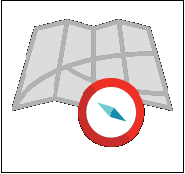Hanoi Safety & Security
Update Vietnam safety and security for travellers to visit Vietnam on business trip or leisure holidays, including crime risk, political situation and different travel modes of Vietnam.
Vietnam is a relatively safe country for visitors, including women travelling alone. In fact, given the country’s recent history, many tourists, particularly Americans, are pleasantly surprised at the warm reception that foreign travellers receive. That said, petty crime is on the rise – though it’s still relatively small–scale and shouldn’t be a problem if you take common–sense precautions. Generally, the hassles you’ll encounter will be the milder sort of coping with pushy vendors and over–enthusiastic touts and beggars.
1. Crime In Vietnam
Street crime and harassment occur, especially in larger cities. Petty theft, including bag-slashing, is common in tourist areas, markets, on crowded trains, buses and at supermarkets. The incidence of petty theft increases in the lead up to Vietnamese and Western holiday periods.
Aggravated theft and assault occur, particularly in Hanoi, Ho Chi Minh City, Da Nang, Nha Trang, Sapa (particularly on the train to/from Lao Cai) and Cat Ba Island (near Ha Long Bay).
Snatch-and-grab crimes against pedestrians by thieves on motorcycles are frequent and have sometimes resulted in injury to victims. These types of crimes can occur when crossing the street or walking along footpaths. Be aware that valuables such as jewellery, handbags, phones and cameras are popular targets for criminals. Pay close attention to your personal security at all times and where possible, minimise the amount of valuables you carry.
There have been reports of taxi scams involving foreigners. At airports, travellers are advised to use airport taxis, prearranged hotel transfer services or taxis from clearly marked taxi ranks with minders. Check that any person holding a placard with your name on it knows your destination. You should ensure that, if you are catching a taxi late at night, you choose a reputable and reliable company and that the taxi driver knows your destination before entering the taxi.
Foreigners have been robbed and sexually assaulted after accepting spiked food and drinks, particularly at late-night establishments in major cities. Pay close attention to the preparation of mixed alcoholic drinks to avoid drink spiking. There have been reports of drug use causing psychotic episodes and hospitalisation. Marijuana in any form is illegal in Vietnam.
Due to the prevalence of HIV/AIDS, hepatitis and other sexually transmitted diseases and infections, victims of violent crime, especially rape, are strongly encouraged to seek immediate medical assistance.
There have been reports of break-ins to hotels and private residences, even while guests are in their rooms. You should take care to ensure your valuables are secure at all times and report any theft promptly to the local police and hotel management.
There have been reported cases of tourists becoming victims of gambling scams. Be aware of people who are overly friendly towards you and invite you back to their home. These approaches may lead to gambling scams, in which some Australians have lost thousands of dollars. Gambling may contravene local laws, which also apply to tourists. See Laws section.
There have been reports of threats of physical violence or death related to personal or commercial disputes. If this occurs, you should report the matter to the local police personally, or through your hotel staff or other in-country contacts. To avoid potential disputes, make sure you have a clear agreement on what the expected level of service is.
2. Political Tension And Terrorism
Although rare, protests do occur in Vietnam. Foreigners should avoid taking photographs of demonstrations, the military or the police, as this may not be tolerated by the Vietnamese authorities. Internal conflict is rare in Vietnam, although some localized violent clashes between protesters and police have, in the past, resulted in a small number of casualties.
There is a low threat from terrorism, but you should be aware of the global risk of indiscriminate terrorist attacks which could be in public areas, including those frequented by foreigners.
3. Local Travel
There have been fatal accidents in rural areas and parks. Don’t stray off main routes and be aware that some terrain can be hazardous. You should follow safety guidelines and procedures. Where appropriate take a reputable guide and follow their advice.
Travel is restricted near military installations and some areas of Vietnam are fairly inaccessible. If you wish to visit a village, commune or ward that is close to the border you may need to get permission from the provincial police department. Contact the relevant local authority for more information.
Undertake any leisure activities which include firearms at your own risk and make sure you are supervised by a reputable guide. There have been reports of hearing loss from those close to these activities.
Unexplored mines and ordnance are a continuing hazard in former battlefields, particularly in central Vietnam and along the Laos Border, formerly traversed by the Ho Chi Minh Trail. Mined areas are often unmarked.
a. Road Travel
The International Driving Permits (IDPs) are accepted in Vietnam since October 2015. You may only drive the category of vehicle for which your permit is valid. You’ll need to show both the IDP and your country driving license to the authorities as required. Don’t use your passport as a deposit for hiring vehicles or in place of a fine in the event of a traffic offence.
If you don’t have an IDP and you want to drive a car or motorcycle you’ll need to get a Vietnamese driving license from the Hanoi Department of Public Works and Transportation (telephone: +84 4 3843 5325) or the Ho Chi Minh City Department of Public Works and Transportation (telephone: +84 8 3829 0451 or 0452).
The standard of driving and vehicle maintenance can be poor. There are frequent accidents and fatal crashes. The accidents can result in costly medical bills and you may not be covered by your insurance. It’s illegal to be on a motorbike without a helmet. Helmet safety standards vary. The traffic accidents tend to attract a large crowd. If you are involved in a traffic accident you could face criminal charges and you may need to pay compensation to the injured person even if the injuries are minor. If you’re involved in an accident or subject to an investigation, offer the police your full co-operation and inform the your Embassy in Hanoi or Consulate General in Ho Chi Minh City.
There are many taxi operators but metered taxis from larger firms are generally reliable. Meters are set at different prices. The meter should start at around 8,000 to 20,000 VND, depending on the size of the taxi. Where possible get hotels or restaurants to book you a reputable taxi.
There have been reports of overcharging for taxi journeys from airports. You should check the published fares near the taxi stands before starting your journey.
Additionally, bus and coach crashes are not unusual and increase in regularity at night. Vehicles are often poorly maintained. When travelling by bus be vigilant against petty theft. Be cautious about offers of free transfers to hotels unless organised in advance, as these are likely to be bogus.
Based on the last few years reports, rail travel in Vietnam is generally safe. Be vigilant against petty theft. There have been numerous reports of personal belongings being stolen while people are asleep on the train between Hanoi and Sapa.
b. Sea Travel
There have been a number of fatal boat accidents in Vietnam, some involving foreign nationals in Halong Bay, including a major incident in October 2012. Safety regulations and standards vary greatly and are not at the same level as the United Kingdom. Check with your tour guide about the safety record and registration of boats, and the certification of personnel before setting off. Make sure you receive a full safety briefing when joining any boat. Consider safety standards carefully before taking an overnight boat trip on Halong Bay as some boats have sunk quickly and without warning.
Piracy has been known to occur in coastal areas off Vietnam. Mariners should be vigilant, reduce opportunities for attacks, establish secure areas on board and report all incidents to the coastal and flag state authorities.
Recommended Reading
Related Category
TRENDING NOW
-
Cave explore 2
08 Jul, 2021
-
Hanoi winter season
21 Apr, 2021
-
Best weather to visit Hanoi
01 Apr, 2021
-
Raining season in Hanoi
01 Apr, 2021
-
Lost passport in Hanoi and solution
01 Apr, 2021
-
Visa extension service in Hanoi
01 Apr, 2021















